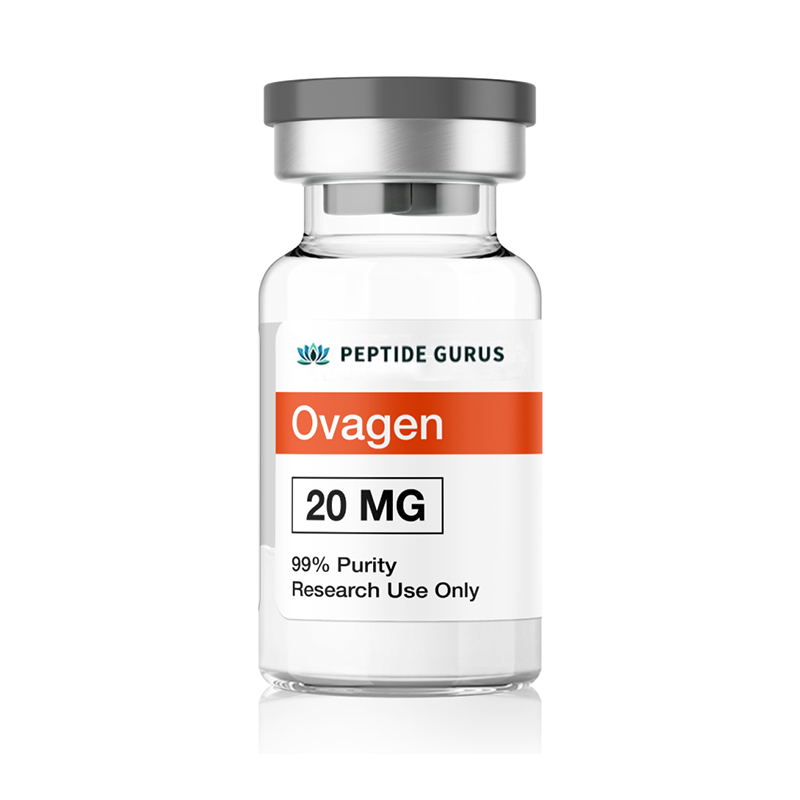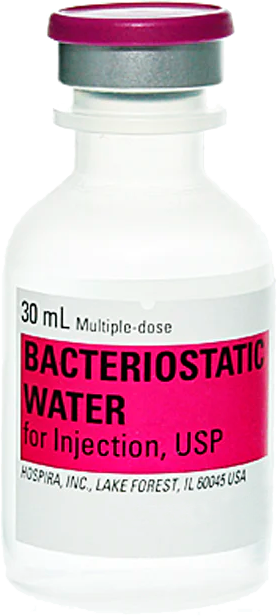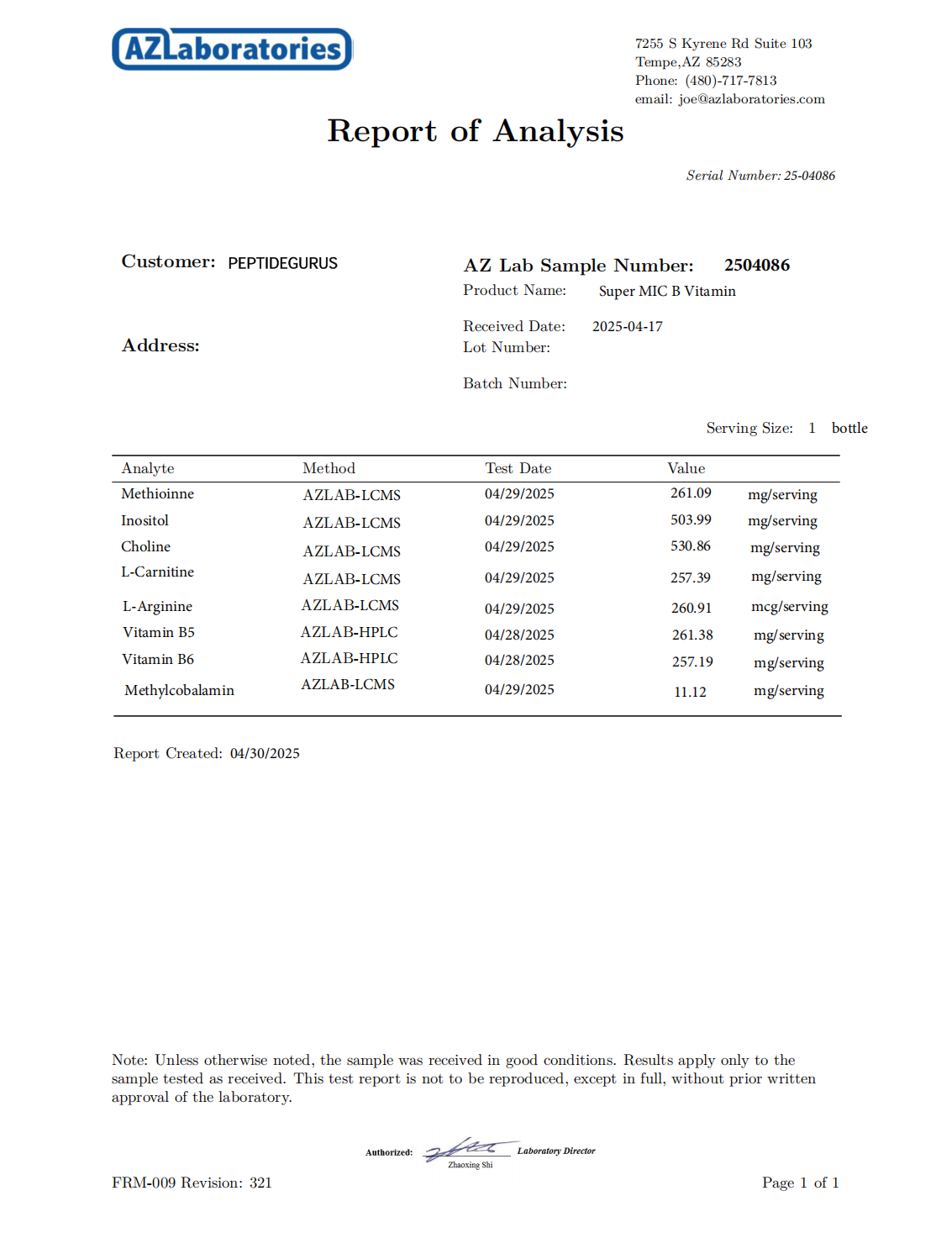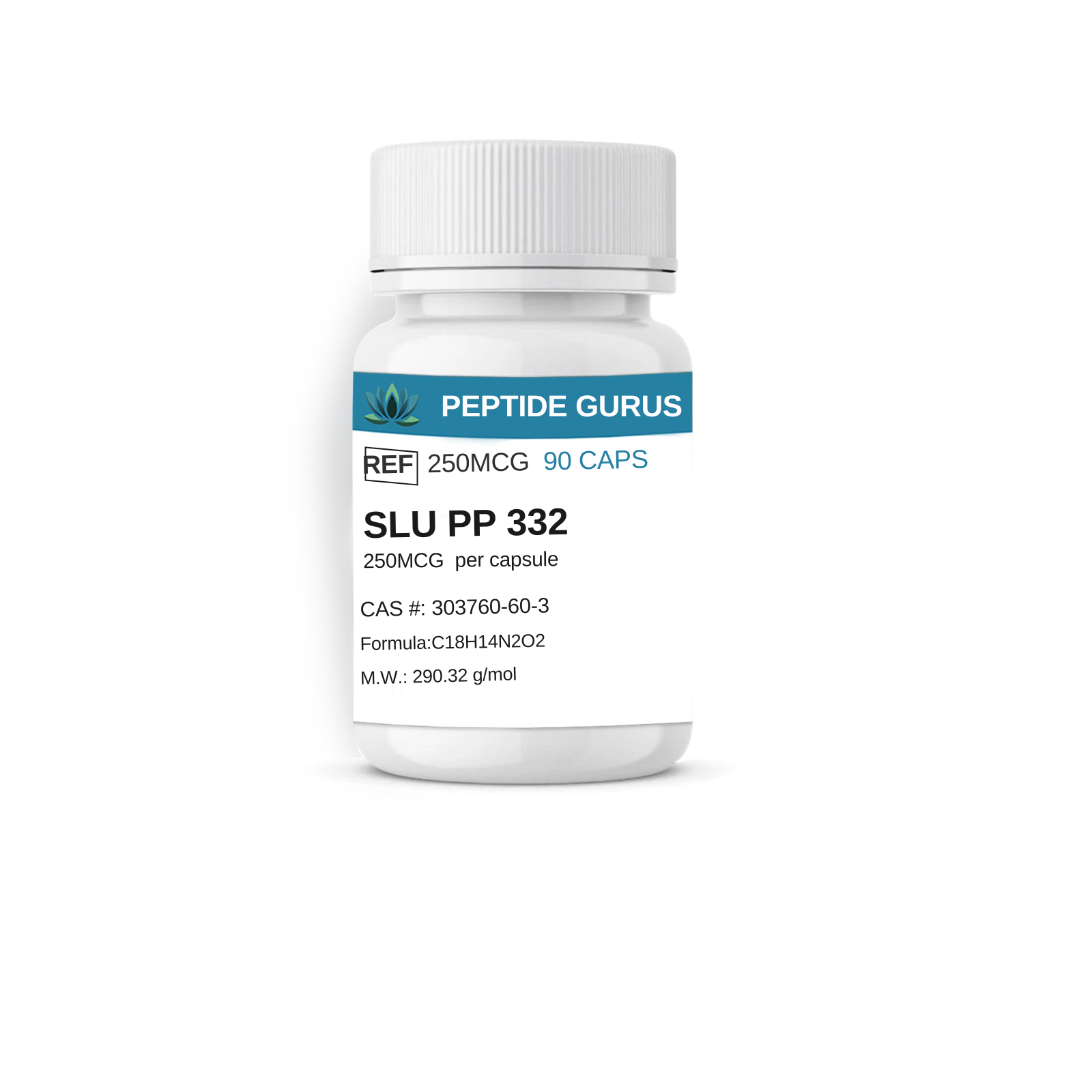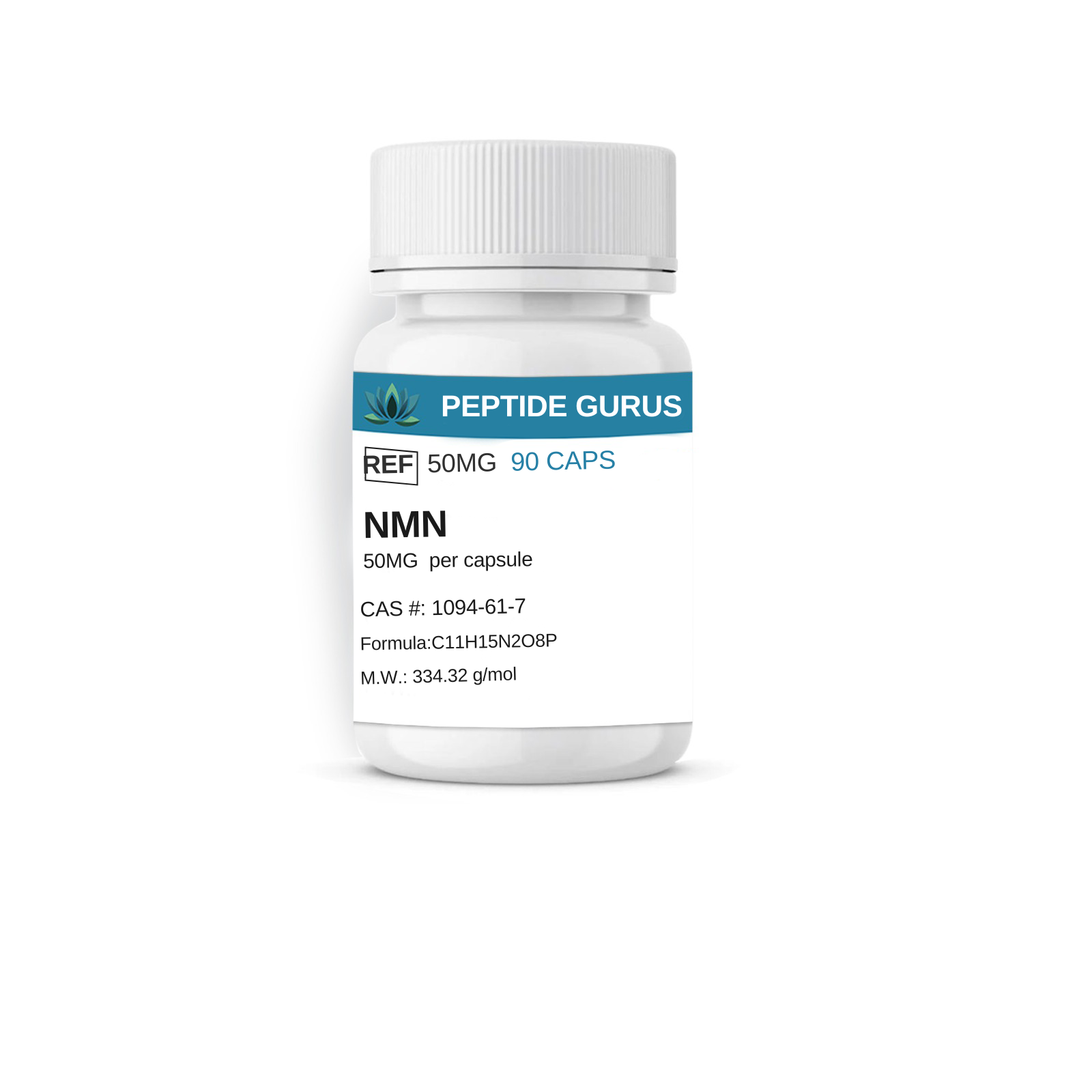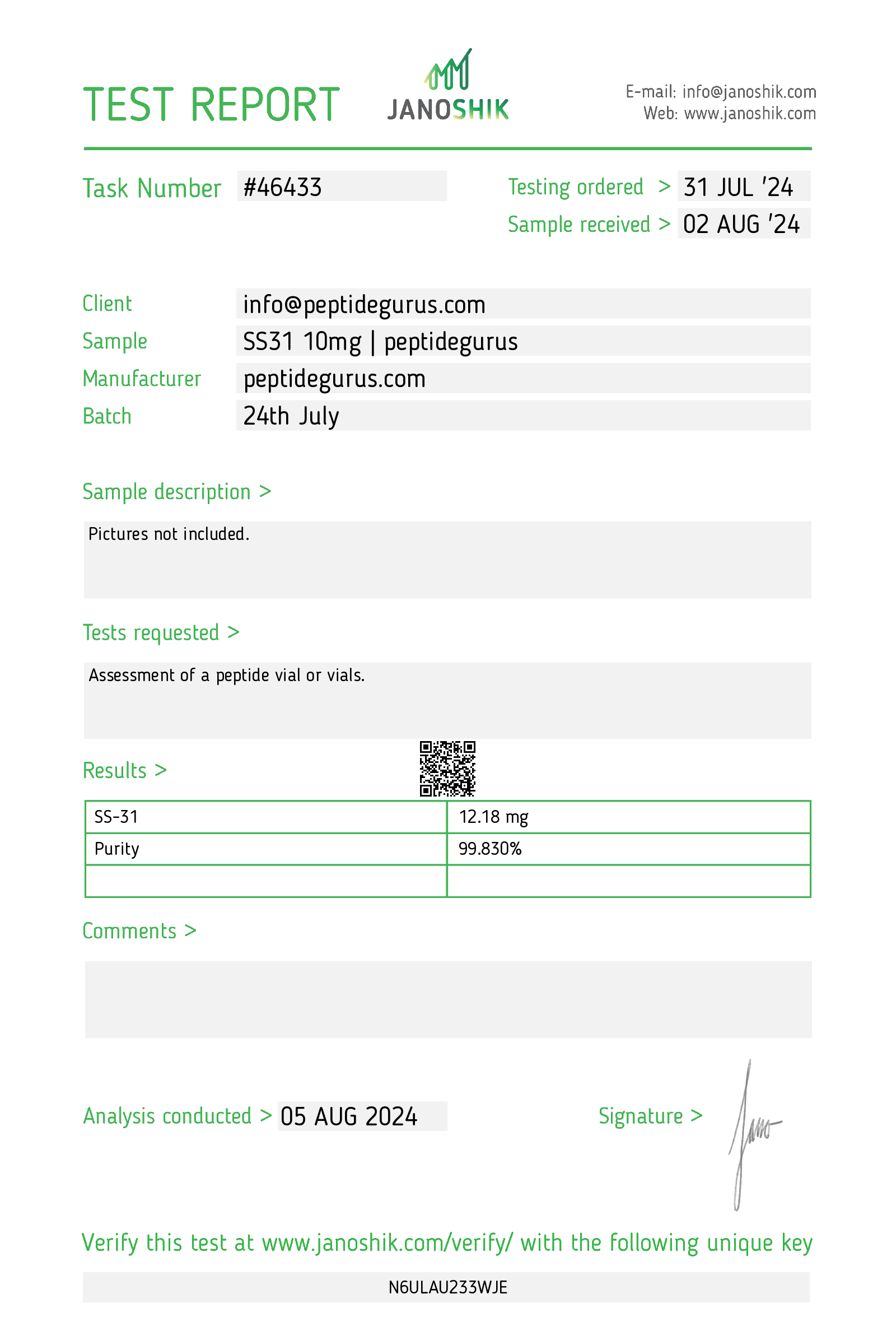MIỄN PHÍ (1) 30 ml nước vi khuẩn
với các đơn đặt hàng đủ điều kiện$ 500 USD.
(Không bao gồm các sản phẩm viên nang, peptide mỹ phẩm, mã khuyến mãi và vận chuyển)
Sử dụng sản phẩm:Sản phẩm này chỉ nhằm mục đích hóa chất nghiên cứu.Chỉ định này cho phép sử dụng các hóa chất nghiên cứu hoàn toàn cho thử nghiệm in vitro và thử nghiệm trong phòng thí nghiệm. Tất cả thông tin sản phẩm có sẵn trên trang web này chỉ dành cho mục đích giáo dục. Việc giới thiệu cơ thể của bất kỳ loại nào vào người hoặc động vật đều bị cấm theo luật pháp. Sản phẩm này chỉ nên được xử lý bởi các chuyên gia được cấp phép, có trình độ. Sản phẩm này không phải là một loại thuốc, thực phẩm, hoặc mỹ phẩm và có thể không bị sai lệch, sử dụng sai hoặc sai là thuốc, thực phẩm hoặc mỹ phẩm.
Bên trên
Ovagen là một bộ điều khiển sinh học tripeptide không nên nhầm lẫn với ovagen có tên tương tự có chứa hormone kích thích nang trứng (cừu) (FSH). Hai sản phẩm không giống nhau và có các chức năng hoàn toàn khác nhau. Trong khi dẫn xuất FSH thúc đẩy sự rụng trứng, đặc biệt ở phụ nữ mắc các tình trạng như hội chứng buồng trứng đa nang (PCOS), tripeptide là một chất điều chỉnh chức năng gan. Trong suốt bài viết này, Ovagen sẽ đề cập đến Tripeptide Bioregulator.
Ovagen là một peptide Khavinson, được phát triển cùng với một số peptide khác, bởi Tiến sĩ Vladimir Khavinson. Giống như các nhà sinh học khác, Ovagen có thể xuyên qua màng tế bào và màng hạt nhân để điều chỉnh trực tiếp cấu trúc DNA và các mẫu phiên mã. Ngoài ra, giống như hầu hết các peptide sinh học khác, Ovagen có tác dụng đặc hiệu của mô. Peptide Glam-Asp-Leu chủ yếu phục vụ để điều chỉnh và bình thường hóa chức năng của gan và tiêu hóa, mặc dù có một số bằng chứng cho thấy nó cũng có thể hữu ích trong việc kiểm soát việc sinh sản virus HIV. Phát hiện thứ hai này đã khiến các nhà nghiên cứu HIV quan tâm đến việc tìm hiểu vòng đời virus.
Cấu trúc ovagen
Trình tự axit amin:Glu-asp-leu (EDL)
Công thức phân tử:C15H25N3O8Trọng lượng phân tử: 375.37 g/mol
PubChem CID: 444128
Synonyms: EDL, glutamyl-aspartyl-leucine, SCHEMBL5329396, 1a30, CHEBI:137252
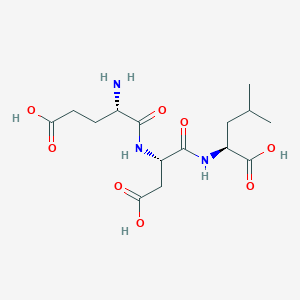
Ovagen and the Liver
According to research from Dr. Khavinson, Ovagen is a bioregulator of the GI tract and liver. In the liver, it has been found to promote cell proliferation and prevent scarring and fibrotic changes that can lead to cirrhosis. In the GI tract, Ovagen helps to boost mucosal barrier function and reduces complications from antibiotic treatment, environmental insults, chemotherapy, malnutrition, and more.
Like most bioregulators, the most robust effects of Ovagen are seen in older individuals. The peptide appears to roll back DNA changes that occur with age, helping to reset the DNA in liver fibroblasts and GI mucosal cells to a more youthful state. In this more youthful state, the DNA is less condensed and therefore more genes are available for transcription. This results in a more functional cell that is less senescent and therefore “healthier.”
Research shows that Ovagen is well tolerate and may be useful in normalizing the function of the liver and GI tract in a number of different inflammatory and disease conditions. It may also be useful in the postoperative setting, during long-term antibiotic therapy, for overcoming the side effects of cancer treatments, and even as a diabetes preventative. Research on the GI and liver effects of Ovagen is ongoing.
Ovagen and HIV
The HIV-1 protease is an enzyme necessary for the HIV virus to survive. It functions to cleave newly synthesized proteins that make up the mature HIV virion. This infectious form of the HIV virus will not function without the HIV-1 protease. In other words, the enzyme is essential for the HIV virus to be able to infect more cells. Without the protease, the HIV virus produces non-infectious progeny and dies out. A number of HIV protease inhibitors are currently FDA approved and used in treatment. Unfortunately, the virus’s high mutation rate results in relatively rapid formation of resistance.
Research on Ovagen reveals that it is an effective HIV-1 protease inhibitor. In fact, it is one of the smallest and most potent protease inhibitors known with an effective concentration of just 50 microM. Unlike other protease inhibitors, Ovagen is highly soluble in water[1]. This latter fact makes it easier to administer.
Ovagen Summary
Ovagen is a tripeptide bioregulator with primary effects in the liver and GI tract. Though research on this Khavinson peptide is limited at this point, it has shown promise as a potential anti-aging peptide in the liver and GI tract. Ovagen reduces long-term fibrosis in the liver and helps to protect the GI mucosal layer from the effects of antibiotics, environmental toxins, and even chemotherapy. There is also interest in the ability of Ovagen to inhibit the replication of HIV.
Article Author
The above literature was researched, edited and organized by Dr. E. Logan, M.D. Dr. E. Logan holds a doctorate degree from Case Western Reserve University School of Medicine and a B.S. in molecular biology.
Scientific Journal Author

Prof. Vladimir Khavinson is being referenced as one of the leading scientists involved in the research and development of Ovagen. In no way is this doctor/scientist endorsing or advocating the purchase, sale, or use of this product for any reason. There is no affiliation or relationship, implied or otherwise, between
Referenced Citations
ALL ARTICLES AND PRODUCT INFORMATION PROVIDED ON THIS WEBSITE ARE FOR INFORMATIONAL AND EDUCATIONAL PURPOSES ONLY.
The products offered on this website are furnished for in-vitro studies only. In-vitro studies (Latin: in glass) are performed outside of the body. These products are not medicines or drugs and have not been approved by the FDA to prevent, treat or cure any medical condition, ailment or disease. Bodily introduction of any kind into humans or animals is strictly forbidden by law.


